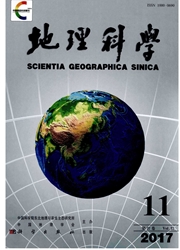

 中文摘要:
中文摘要:
场所依赖(place attachment)探讨的是个人对充满意义的特定场所产生的某种认知或感情的联系。作为一项探索性研究,以2011西安世界园艺博览会为案例,采用质性研究方法,通过参与观察和深度访谈等手段获取研究资料,运用扎根理论深入分析游客的活动特征和情感态度,研究游客的节事场所依赖特征。在此基础上挖掘和提炼节事场所依赖的维度,最终构建一个由个体、社会、场所和节事4个维度构成的节事场所依赖PSPE概念模型,为节事场所依赖的定量研究打下基础。
 英文摘要:
英文摘要:
Place attachment is a hot topic in place study which is defined as an individual' s cognitive or emo- tional connection to a particular setting or milieu, which attracts a great concern of researchers in the field of human geography, urban sociology, community science, environmental psychology, and behavioral science. However, place attachment study is seldom related to event venue. A literature review shows that most re- searchers treated event as an attribute of event host community to study the place attachment between 'people and host community, but paid little attention to event venue itself. As an inductive research approach, groundedtheory is appropriate for situations where no pre-existing theory exists, which indicates its usefulness for the exploratory study on place attachment in event venue. The primary purpose of this study is to document the meanings event-goers attach to a specific event venue. If those meanings are known, managers can more effec- tively plan for the management of venue deemed to be special by their constituents. As an exploratory re- search, the International Horticultural Exposition, 2011, Xi'an (Expo 2011 Xi'an, China) is taken as a case, and first-hand data are collected from observation and interviews. The task of observation and interviews is to find out what factors in venue significantly affect the cognition and emotion of event-goers. Interviewees were asked to respond to a series of instructions regarding the venue of Expo 2011 Xi'an, China. The instructions are as follows: 1) describing in a few sentences what the venue is like--for example, what the venue looks, sounds, smells, or feels like, important features presented, and so on; 2) describing the thoughts, feelings, mem- ories, and associations that come to mind when they think about this venue; 3) why this venue is important or special to them. To ensure diversity in types of event-goers in levels of experience, a systematic sampling strat- egy is employed. On-site sampling is divided into si
 同期刊论文项目
同期刊论文项目
 同项目期刊论文
同项目期刊论文
 期刊信息
期刊信息
